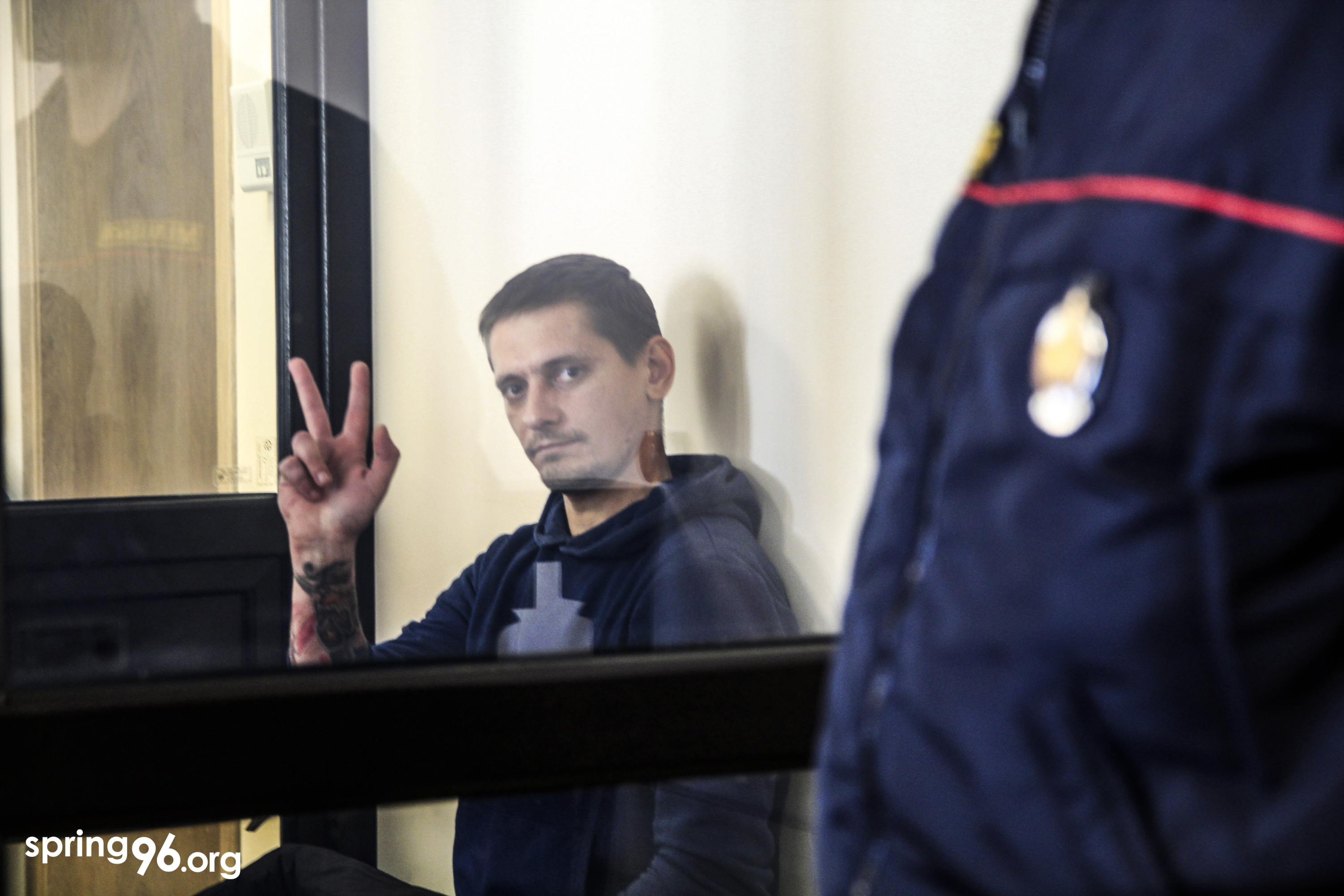At least 439 people sent to prisons on protest charges: One year after first sentence in post-election trials Updated
One year ago, on September 29, 2020, the first politically motivated verdict was passed for the events related to the rigged presidential election. On that day, Pavel Piaskou and Uladzislau Yeustsihneyeu were convicted under Part 2 of Art. 363 of the Criminal Code for resisting riot police officers during a rally on June 19, in which a riot policeman pulled out a gun to threaten unarmed protesters.
Judge Viktoryia Paliashchuk sentenced Piaskou to three years and three months, and Yeustsihneyeu – to three years in a medium-security penal colony. Now Pavel is serving his sentence in Babrujsk, and Uladzislau – in Navapolack. On September 29 last year, there were 73 political prisoners in Belarus. Today, the number is nearly ten times higher.
Over the year, 945 people were convicted on political charges
The main type of repression the authorities use is criminal prosecution for openly expressing one’s civil position and disagreement with the government’s repressive policies. People across Belarus are still arrested on a daily basis to face criminal charges related to their exercise of basic rights and freedoms before and after the presidential election of August 9. In total, according to law enforcement agencies, 4,691 criminal cases have been launched in Belarus since August 2020 to target participants in the post-election protests.
Viasna knows the names of at least 945 people convicted in politically motivated criminal trials. Of these, 158 are women and 787 men. Almost half of them, 439, were sent to prisons. 234 people were sentenced to terms of restricted freedom in open correctional facilities (“khimiya”), and 232 more were sentenced to home confinement (“domashnyaya khimiya”).
77% convicted of only 4 offenses
The most common articles of the Criminal Code used by the authorities for repressive purposes were Art. 342 of the Criminal Code (organization and preparation of actions that grossly violate public order, or active participation in them), Part 2 of Art. 293 of the Criminal Code (participation in riots), Art. 364 of the Criminal Code (violence or threat of violence against a police officer), and Art. 369 of the Criminal Code (insulting a government official). A total of 731 people were convicted on these charges.
The courts never reacted to the defendants’ complaints of ill-treatment, torture, pressure and coercion to testify at the pre-trial phase. Judges often ordered excessively severe verdicts based on testimony obtained by force in violation of key procedures.
Up to 18 years in prison – longest sentences of the year
The eight harshest sentences of the year include those handed down to former presidential candidate Viktar Babaryka and head of his campaign Maryia Kalesnikava. All of them were called political prisoners by a coalition of leading human rights organizations:
Maksim Znak, Aliaksandr Kardziukou, Aliaksandr Trotski and Yahor Mikhailau were each sentenced to 10 years in a penal colony;
Maryia Kalesnikava and Tsikhan Osipau were sentenced to 11 years in a penal colony;
Viktara Babaryka – 14 years;
Dzianis Urad – 18 years.
UPD. On September 30, Aleh Shandarovich, chairman of the Investigative Committee, said that the authorities opened over 5,000 protest-related criminal cases since August 9, 2020.


















